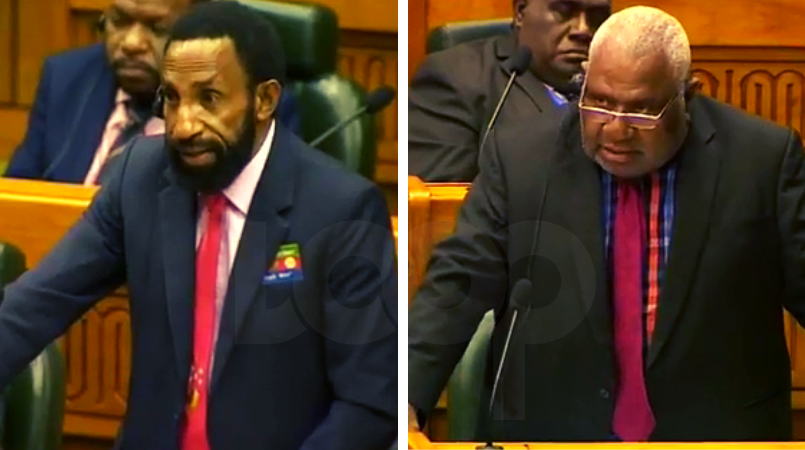
The Environment and Conservation Minister was once again subjected to questions relating to PNG’s natural resources.
This time, a new concern emerges in the form of the Gulf of Papua dredging.
Minister Wera Mori is already unpopular with the people of Morobe when it comes to his views on deep-sea tailings placement, or DSTP.
Whilst the people and leaders of Morobe are pushing for a more sustainable waste disposal method for the Wafi Golpu mine, another concern has risen from Western Province in relation to Minister Mori’s view on the cleaning up of the Fly River “at no cost” to the State.
In an article in one of the dailies, Mori was reported to have considered a proposal by a Hong Kong based company to clear the waterways and sea by shipping away all sediments free-of-charge.
His statement met backlash from the community, with social media labelling it as “sand mining in disguise”.
In Tuesday’s Parliament session, North Fly MP, James Donald, said the provincial leaders were unaware of this arrangement, where he further questioned the rationale behind the exercise.
“Wesan ba yu karim i go lo Hong Kong na wokim wanem? Na mi laik save tasol sapos disla wok i kam tru lo NEC pinis o nogat? Sapos disisen i kamap, inap lo toksave so mipla olgeta bai save na yumi olgeta holim han na wokim wok,” said Donald. (What will you do with the sand that will be taken to Hong Kong? And I want to know if this proposal has been submitted to the NEC [National Executive Council] and if a decision has been made, can we all be made aware of it so we can work hand in hand?)
In response, Mori pointed out the environmental issues that have plagued Western Province since the commencement of mining operations.
“The reason we need to do this is simply because…there has been oversedimentation and we have got sand buildup at the mouth of the Fly River. And that slows down the energy of the Fly River itself,” said the Environment Minister. “When that happens, it basically means that those sediments have got a lot of those mine-related materials caught up in them, suspended in clay.”
Mori said during dry season, when the waterline recedes, materials high in chemicals are deposited on the banks, promoting a reaction called oxidisation. The next flooding of the river banks would convert what has been oxidised to the harmful sulphuric acid.
“And as a government, we have to do something,” he said. “So in actual fact, I issued an environmental improvement plan to the Ok Tedi mine to take responsibility and manage this process.”
The Minister suggested that the Western Provincial Government work in partnership with OTML and arrange for the dredging exercise to clean up the mouth of the river.
(From left: North Fly MP, James Donald, asking Minister Wera Mori a series of questions)
